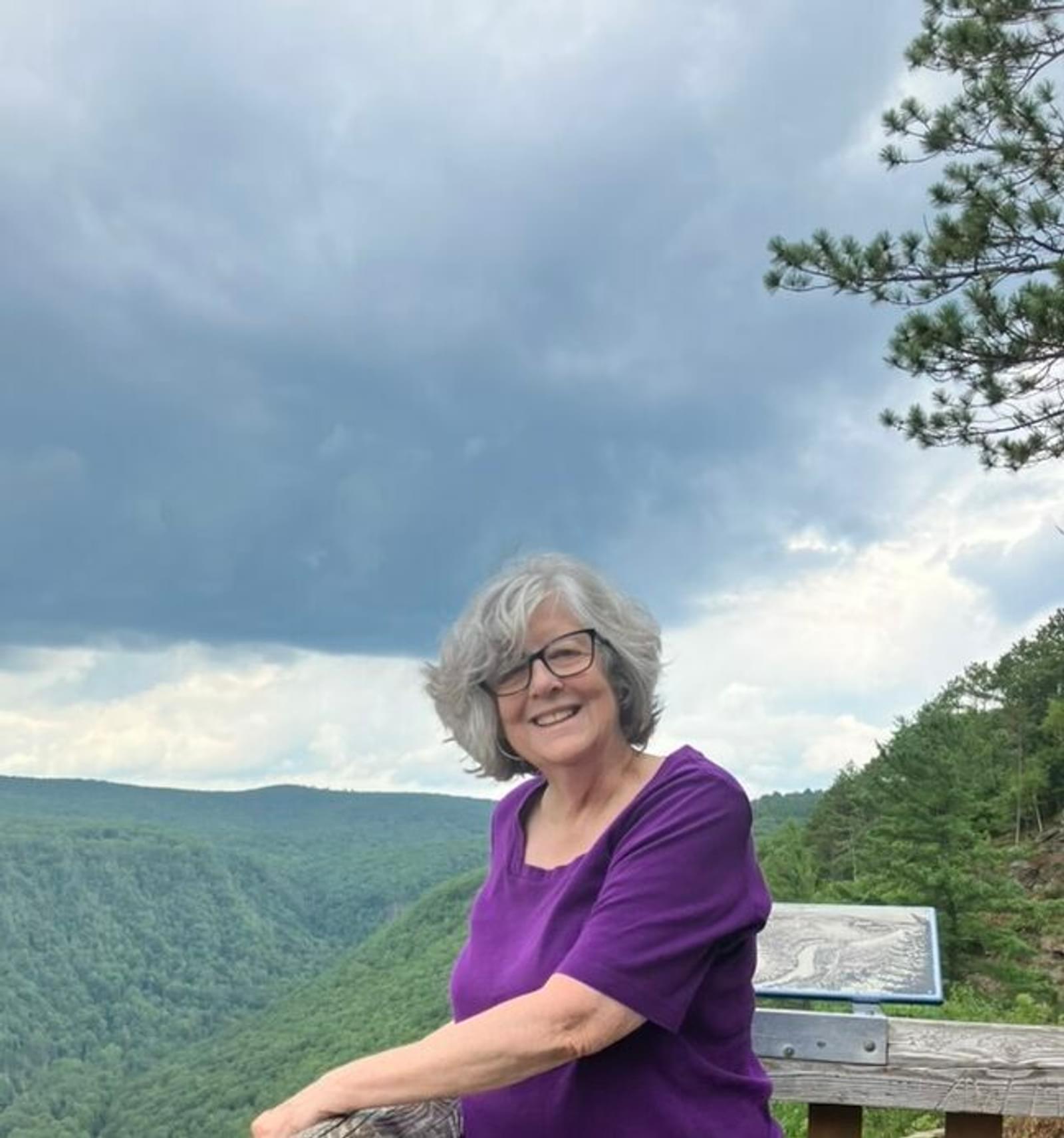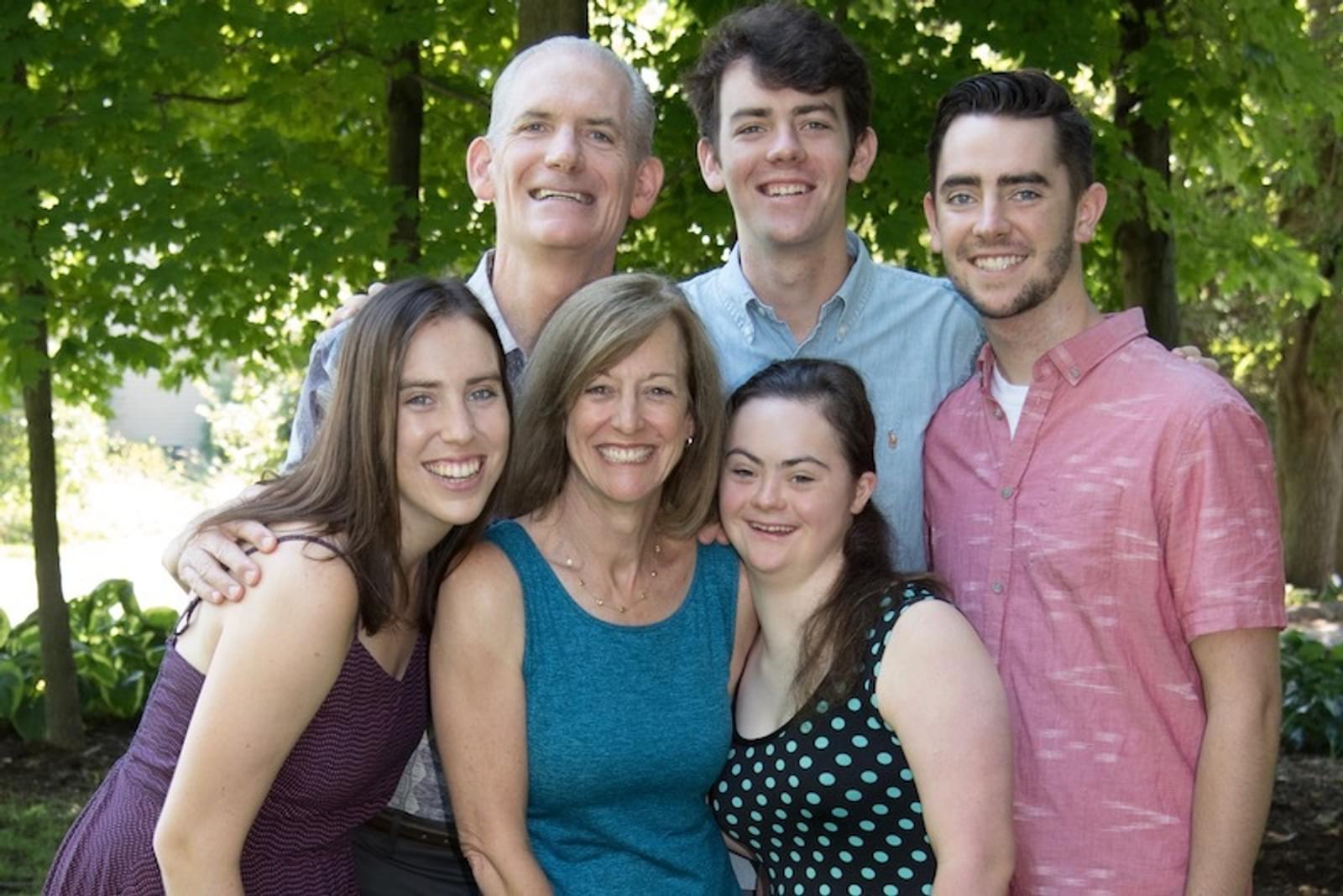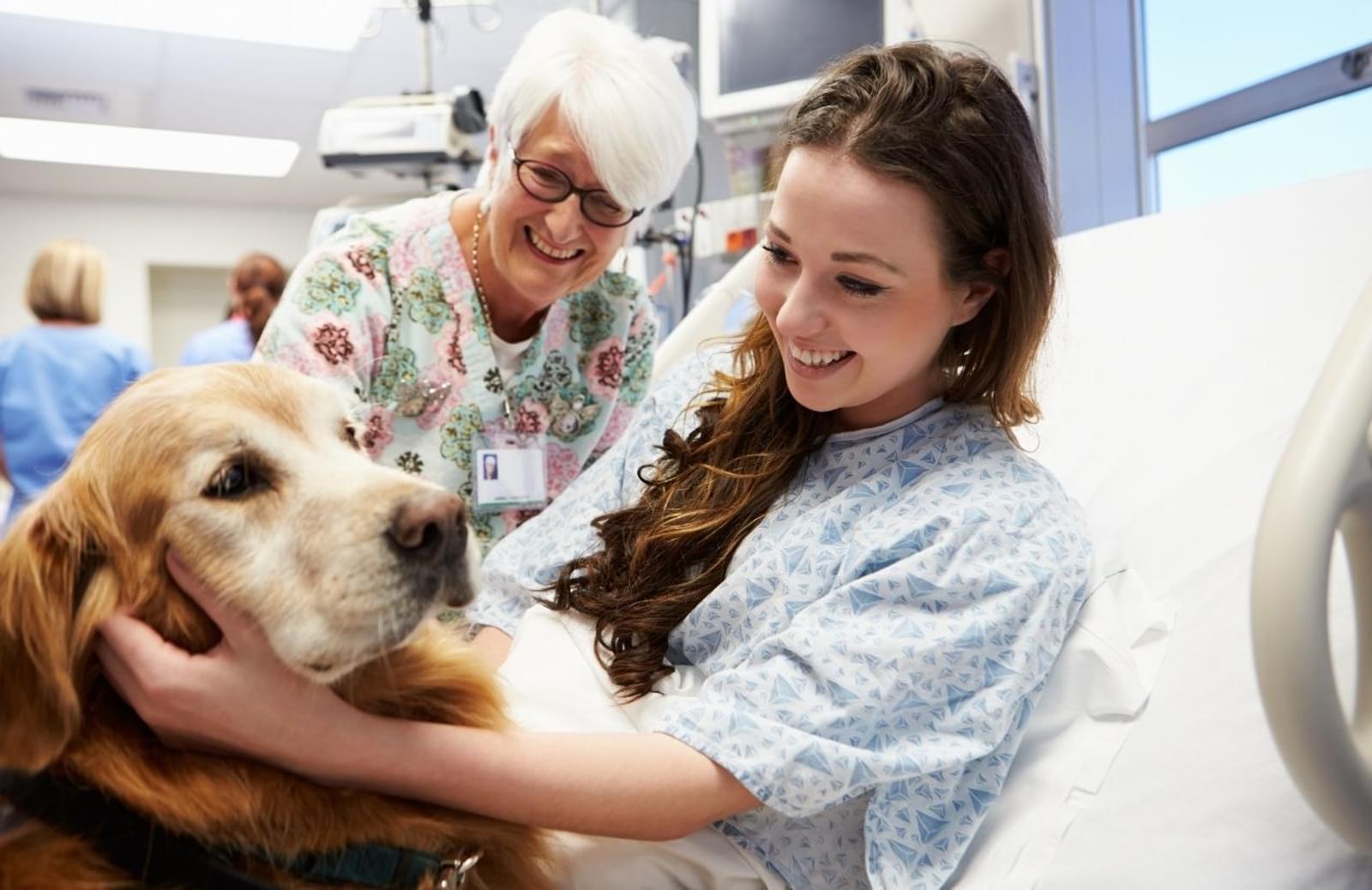
We caught up with Karen to dive a little deeper into her story and the advice she has for other parents navigating caregiving for those with special needs..
Tell us a bit about how and why you came to take your career breaks?
The first career break came about simply because as I became a parent, I realized there was a lot of care involved with children that couldn't be put to a schedule. I needed to be available, not only later on to my youngest child who has significant medical issues, but also to be available for elderly parents, while still being fully responsible on the job. My first career break was for about a year and a half after I had my first child. At this time of my career, my focus and experience had been in child welfare. Despite looking high and low, there was nothing in that field that I could see me being able to manage on a part-time basis, so that lack of flexibility was really the impetus for my shift to medical social work where part-time opportunities were more readily available. After my second child, I took a short six month break and went back into a very similar part-time arrangement.
When my third child was born, she was born with a critical heart defect and spent the first three months in the hospital. She continued to have multiple other issues that kind of snowballed on us, to the point where she was in and out of the hospital really for the first four years of her life. There was truly no way I could find a way to work, to be employed. It was helpful that I had some close friends and family nearby, although her care required using a feeding pump because she was fed through a feeding tube, some people just didn't feel comfortable with that. Additionally, your usual avenue of childcare, like daycares and things like that were not real options, in part because I didn't want to expose her to those environments because of the concern over communicable diseases with her compromised immune system, but also because I knew these facilities weren't equipped to handle the level of care she required. Fortunately, I was able to get her into early intervention, which started for her around the age of three.
What does this arrangement entail and how did this affect your caregiving schedule?
Early intervention is a publicly mandated and funded program that provides various services to babies and toddlers with developmental delays or disabilities. So it is a type of therapeutic preschool where my daughter was able to receive things like physical therapy, speech therapy and occupational therapy. They would come and pick her up, take her to a center where there was an RN who could manage some of her tube feeding and general medical care.
This type of arrangement was very helpful in that it gave me some respite in the mornings and it really afforded me some time in the mornings to do some work. During this time, I picked up some "fill-in" jobs, really anything to make money, although I didn't go back to contract work. Ultimately I did find a job that was 20 hours a week, but what was key for me was that I could work whichever 20 hours I wanted and do some of the paperwork at home. I just felt it was important to try and keep a foot in the door, somewhere. I also maintained my CEUs and my license and all of that so that I could get back quickly when it was time for me to return.
What are some of the skills that you developed prior to your career break that you feel served you well during your career break?
Early on in my social work career, right after my first career break, I made a switch from child welfare to medical social work, which is a field of social work that requires a completely different set of skills that I did not have. So I had to work on acquiring these skills and one of the ways I did that was through working with medical professionals.
One thing I did do during this pivot which occurred after my first career break but before my second break was to take a course in medical terminology. Although it wasn't a professional course it was still extremely helpful. Most of the people in this course were people that worked clerical roles in medical offices or they typed up doctor's reports or something along those lines, so they had to have a vocabulary and general understanding if they were reading documents that a doctor wrote. Beyond deciphering the terrible penmanship, they had to be able to comprehend some of the terminology and have a general understanding of the content of the document in order to type it up or replicate it.
This course ended up being helpful for me not only later in my career but ended up providing me a foundation for medical terminology that I would later rely on when advocating for my daughter's care in the health system.
What are some of the skill sets that you developed during your career breaks that you feel served you well in your relaunch?
I spent so much time in the hospital with my daughter, I felt very grateful at that point that I had worked in the medical field, professionally. Not that I could walk in and tell people what to do, but I could understand more of the conversation and than probably the "run of the mill mom" that was sitting there (in part due to that medical terminology course I mentioned previously). And that I was grateful for.
I think it was important to have an understanding of how that medical system works and that became a very important skill of being a caregiver, even later in life when my late husband got sick and when I had two elderly parents whose care I oversaw. It is not a user friendly system, so it isn't something that is easy to be a patient in, and it's not easy to be a professional in. You have to understand the insurances, you have to understand the dynamics, the medical model, which is that decisions are made from the top down.
And that is a tough reality to face...that there is not a lot of democracy in the medical system, although it's getting a little bit better. But it was also helpful to walk in and understand "Okay, they're a fellow. I need to speak to the attending," or something to that effect...or "Okay, you're the nurse practitioner. Which department are you with? And who is your attending?" Those are the kind of things you have to always have in your mind when you have a patient in the system is, who's in charge and what is the political hierarchy?
These skills became very important when it came to advocating for my daughter or for myself. And knowing how to advocate was also an imperative. You don't just scream like a hysterical mom, although I certainly have screamed like a hysterical mom when the situation warranted it. But in doing so, I have said, "This is what you need to do, get her out of this hospital and into another one," or "I would like to speak to Dr. So and So please."
One skillset that social workers in particular have that I think isn't quite as apparent is interviewing skills, because we're always asking questions. Information is power and particularly in the medical system, so asking questions is really important: "What's going on, what the results of the test that they had this morning came back as? What is that? What does that mean? What's next?"
You really have to be persistent and write things down...I took a log and wrote copious notes. And in a way, that's what you do in social work because you have to document the phone calls, the reports, the face to face meetings and write down exactly what was discussed and what the outcome was. So interviewing, asking questions and documentation skills definitely helped me in both a professional and personal setting.
What made you decide that you were ready to relaunch back into the workforce?
Money.
We had to bring in more money. I had to find a way to do that and I had to do it while I was straddling home hospital with my kid and two other children and a job. I had to find a way to do that. The other thing was I had to be in a position where had the flexibility of making my own schedule. I had to be, otherwise it wouldn't have worked. I would've been fired.
So it had to be an arrangement where I would say, "Okay, I will get out in the next couple days to see Mr. So and So" and they trusted me to do that. This is why the visiting nurses agency role worked well for me during this time. I would call the person, make my own schedule, maybe only go out to see them so that I only had to leave my child for an hour or so and I would go out to see them. I would come home and do all the rest of the work over the phone and write my documentation at home on the computer...so that flexibility made it doable, rather than having to be in an office setting or facility all the time.
When did your career evolve back into a full-time role and what did that look like for you?
I had to wait until my kids were older and my daughter was stable. I took another part-time position after the visiting nurses agency. It was still very similar, but I was a HIV case manager, so I worked with HIV/AIDS patients in the community and I was required to put 20 hours in and there was another employee that did 20 hours so it was essentially a job-share arrangement. Together we covered a certain amount of geography and numbers of patients and we would share our schedules with each other and cover for each other.
Then she left and I ended up taking on the full-time job, which came with its own set of challenges, not the least of which was that grant money set aside for the particular program which we were employed was cut back, moved elsewhere and eventually the program was defunded. But it was also very difficult to be only one person covering that full-time role...in addition to covering patients across the entire region, I now also had to update the grant every year, pick up nutritional supplements, store them in my office and lug them up all by myself because I was the only employee running this program. My kids were older and were in public school full time, so I was able to work more consistently around that schedule. However, I ultimately decided I needed to be somewhere where there was more than one employee, meaning me! One good thing about this role though was that it was a job where I was very involved with a large network of both patients and practitioners, including those at the VA who were referred out to us to connect their patients with other supporting services in the area for HIV. I maintained a lot of relationships in this role and ultimately, it was these relationships that led me to my role at the Veterans Administration.
The local VA where I worked did not hire part-time roles, so I continued to work full-time from then on out. In a way, I guess I was blessed because social work is a female-dominated profession. And maybe it shouldn't be...maybe we'd make more money if it wasn't…but the profession itself is full of mothers. And any working mother out there knows that "family is first." Fortunately, in this particular social work department at the VA, there was an implicit understanding that there needs to be some degree of flexibility, as long as you're not abusive with it.
How important was networking during your relaunch?
One of the things about social work is that, it's a profession that by design is to help other people, so of course if you are in that type or professional environment, those around you are going to want to help out. Beyond one's individual motivation to help other people, the setting of social work in and of itself is very much a networking function...you're constantly getting to know different contacts at this nursing home, or at that hospital, or in this department and you're calling up different contacts to try to help facilitate and guide a patient through the system in the most effective way. In doing so, you meet a lot of people and there's always information being exchanged whether it's on the patient's behalf or someone asking "How did you get your role at in the VA? How did you get into the federal system? Can you tell me who I can call?" So later in my career, I would network with people trying to get roles at the VA since earlier in my career, I found out about the job I relaunched at largely through networking in the same way with people I knew from other jobs. So it truly was "through the grapevine" and I think a lot of those in the social work field try to pay it forward however they can.
What were some of the more challenging parts of returning to work?
Contrary to what today's workforce looks like and how working from home is more normal than not, I think working from home was challenging for me and my particular situation. There was a certain relief when my kids got old enough that they were at school during the day. In the same breath, working from home was quite isolating for me. I was relieved to get out into the work field where I got up in the morning and left the house and went to an office where I had a little more peace and quiet.
With that being said, when I was working at a local hospital in the psychiatric unit (after I had relaunched with the visiting nurses agency doing home-health visits), it was so stressful. My patients would come and bang on my door and while I had no problem with that...that was what they needed to do at that point in time, but there was just this feeling of walking into the hospital in the morning and it was like walking into another world where you forgot about everything else. You had no downtime...you got paged during your lunch, you got paged during your breaks. I had to find something that helped me get through the day and home health was the answer because it gave me a break.
I am glad that I found my way back to the home-health kind of position because this arrangement just worked very well for me. When I left the local hospital system roles for my role at the VA, similar to the visiting nurses agency I worked for when I relaunched, a lot of my work again consisted of home-based care visits and there was quite a bit of driving around to visit my various patients. Social work can be a very stressful field because all you do is see a lot of horrible situations where you are visiting dying patients and poor living conditions and families struggling with the illness and death of a loved one, as caregivers and also the financial aspect of these things. So having the time to drive and decompress was very helpful in dealing with that stress and emotion because I could get behind the wheel and turn up my radio and not think about anything work-related until I was on their front porch, and I needed that little bit of a break throughout the day.
What was the most exciting or gratifying part of relaunching your career?
I think what was most exciting for me was to actually be back in a professional setting and not constantly being in "mom-mode." Having that face-to-face contact with colleagues, having a network of people that you could discuss work-related topics with and maybe even have lunch with. One of the things that was interesting for me was that all my colleagues weren't fellow social workers when I relaunched at the visiting nurses agency.
I worked primarily with nurses, physical therapists and occupational therapists. We worked in a team and I loved the teamwork aspect. And because I was working with other professions, I was exposed to other schools of thoughts and ways of fact-finding information. I would hear new questions like "What are their motor issues? What is about their environment that I need to work on with the family to change so that it's safer? What issues are you working on with the patient? What is their prognosis, their true prognosis medically?"
It can be hard working from home, sometimes you feel like you're the lone ranger and you're the only social worker and you don't really feel that sense of team. So I did really enjoy relaunching back into a team setting where I could work with other professionals and find that camaraderie and support.
If you could go back in time and give yourself advice prior to your career break, what advice would you give?
You can't lose sight of you. You have to stick with it and have your own priorities and acknowledge that you're allowed to have your own priorities. Oftentimes in the workplace, external parties do not want you to have your own priorities other than your work. If it is not a friendly environment where you can advocate for yourself and your families priorities, don't stick around. It can be very demoralizing if you don't make that change for yourself. You can have your own priorities...you deserve to have your own priorities.
I didn't end up with a lot of power and authority. To me, that wasn't a priority. I didn't really care. I just wanted to do a good job for my patients, for my clients, and take care of my family and maintain some semblance of balance at the same time.
What advice would you give to other families navigating complex medical issues with their children or family members?
I'm not sure where I sit on how well I navigated. I think I was a good advocate for my daughter. I had to be. I think you have to expect professionals in the field to be respectful of you. Initially, we're going back 30 years, thirty-some years with my daughter being born and being ill and her being in the hospital and there was a certain level of, "Oh, Let's keep mom out of the room until we figure out what we want to do."
So you were not included in some of the decision making and there is nothing that makes me more angry than that. So I had to:
A - control my anger, and
B - be respectful of them, but expect them to be respectful of me.
And to educate myself on my daughter's issues. You can't be an inactive, passive parent of a special needs kid. You have to get in there and fight, and you have to understand all the issues too, as best you can. And if you don't understand, then that professional has the responsibility to put things in terms that you can understand. And they sometimes have to be reminded of that, "I'm not sure I understood what you just said. Could you put it a little differently so that I can better understand and make an informed decision?" Informed decision is a key phrase.
Did this story motivate you or inspire you!?
Do you have a relauncher success story of your own to share with us and the rest of the relauncher community? Sharing your inevitable success is a great way to give back as your story will inspire and motivate other relaunchers, especially if your story is not the typical story that is told.
It is our hope that all relaunchers are able to see themselves reflected in relauncher success stories as we all know how important representation is. We respectfully ask you to share only the details of your relaunch you are comfortable sharing, but to indeed share your story with us so we can be sure to document and feature a more diverse population of relauncher experiences, backgrounds and identities.




